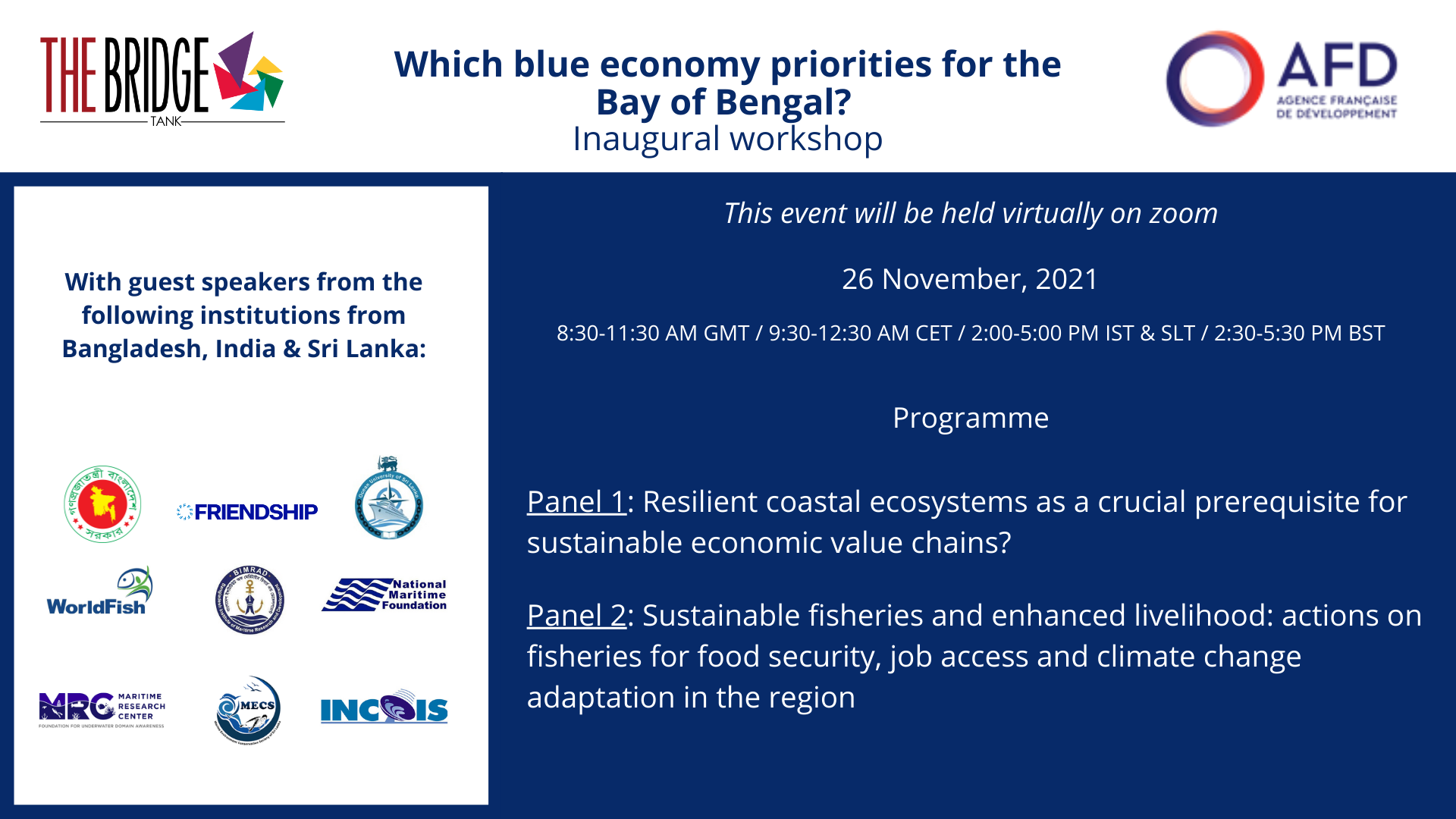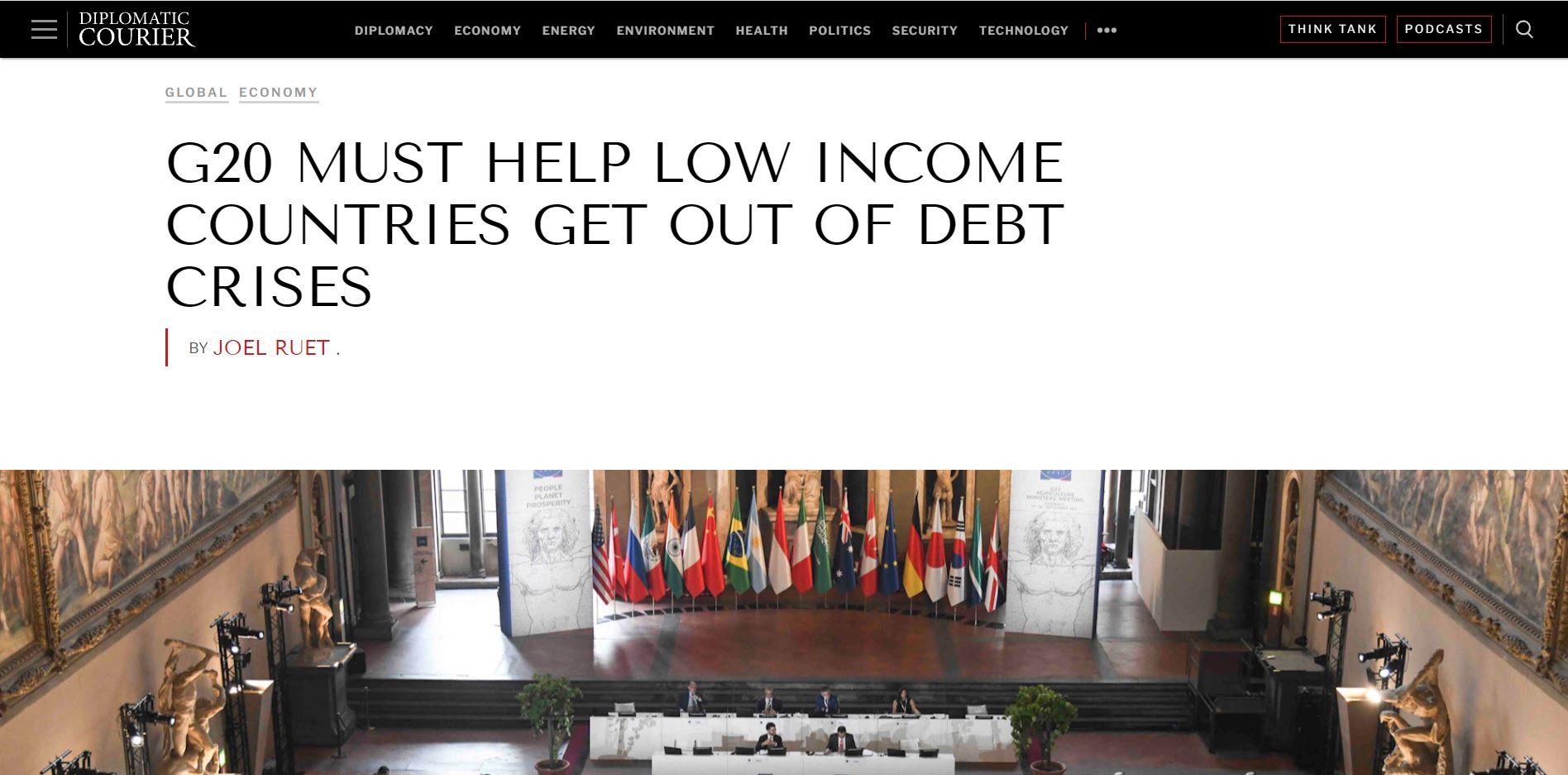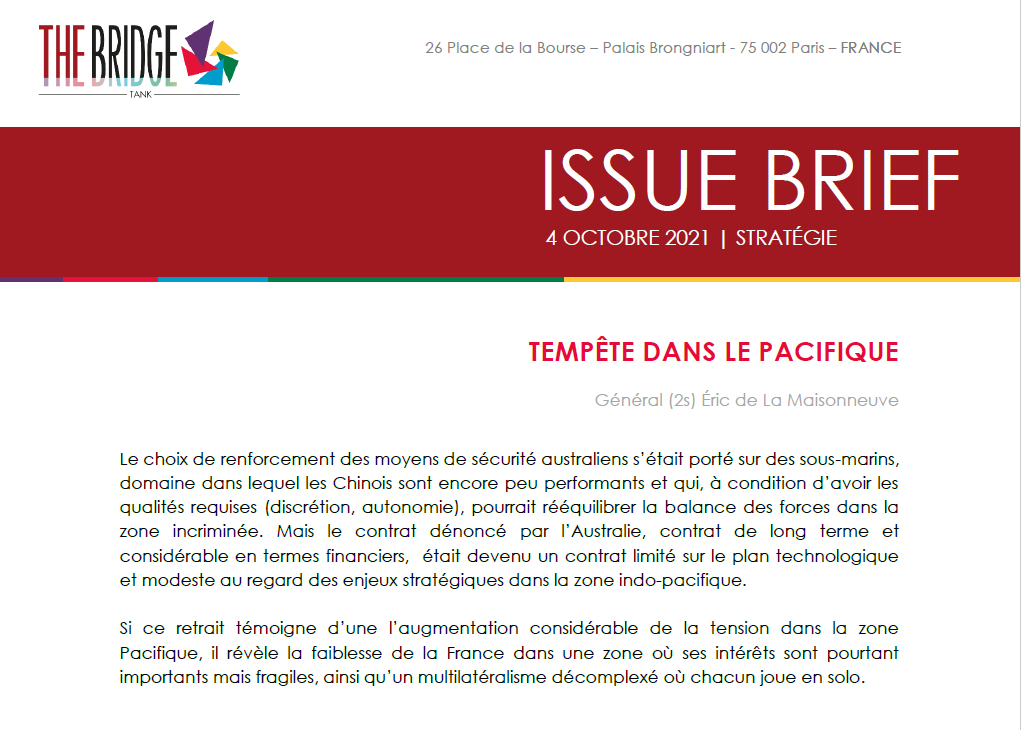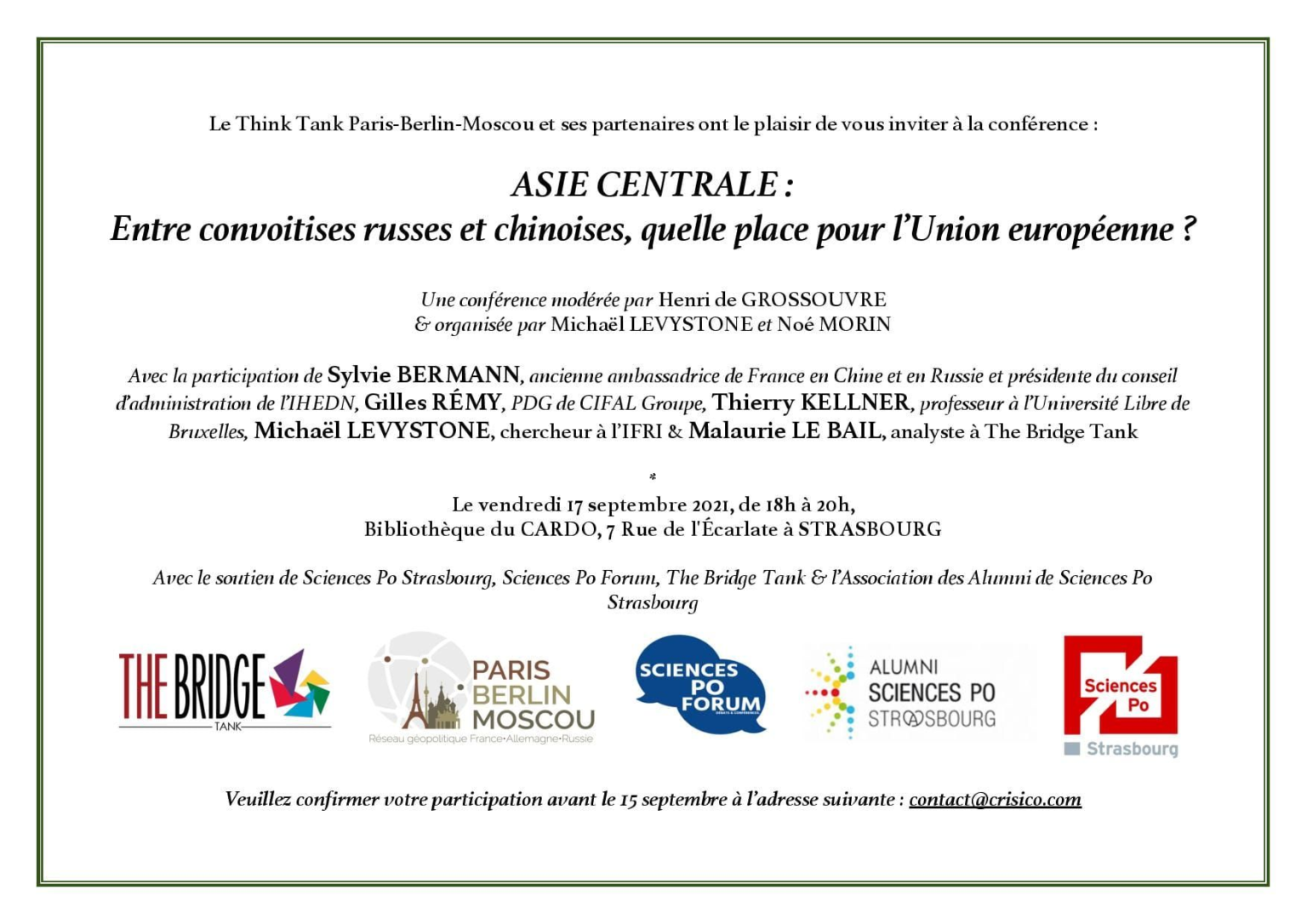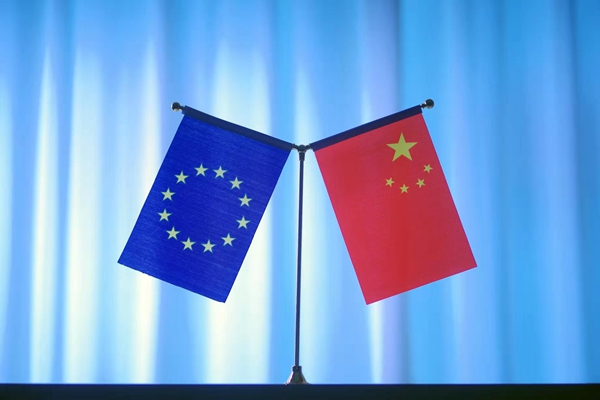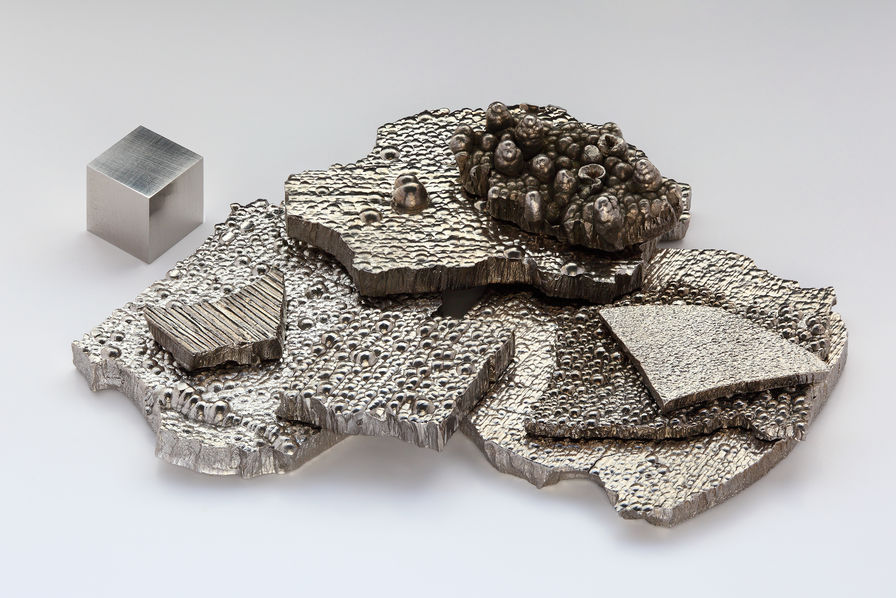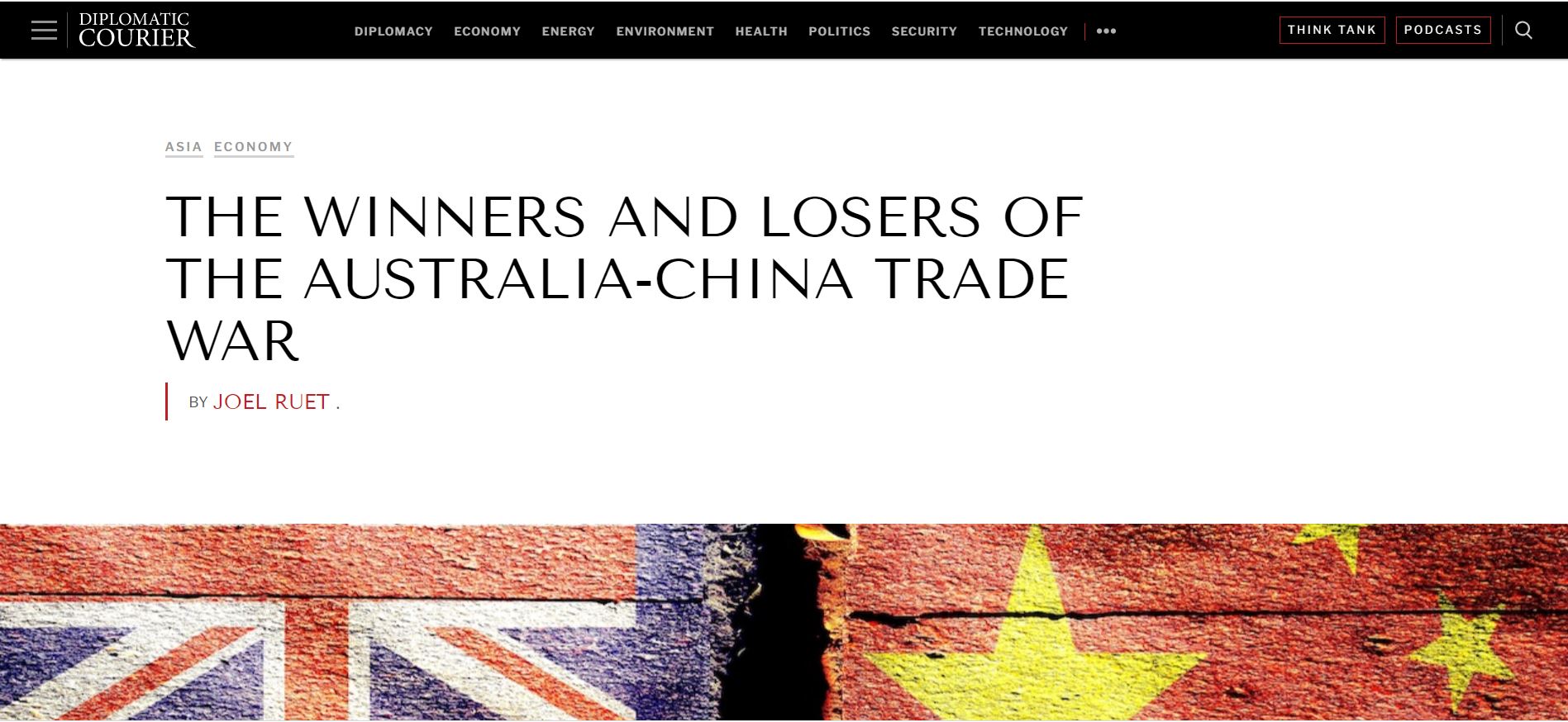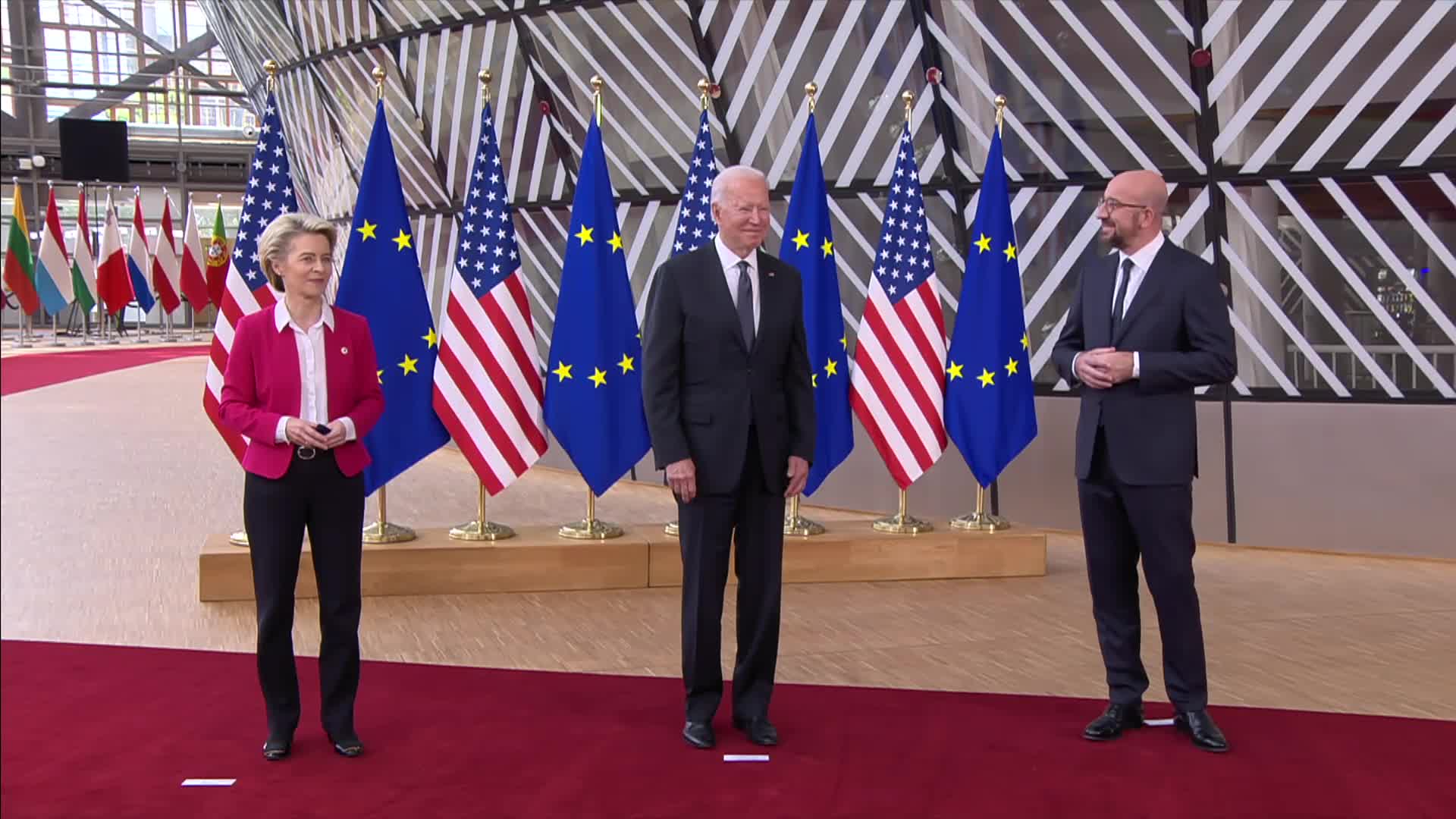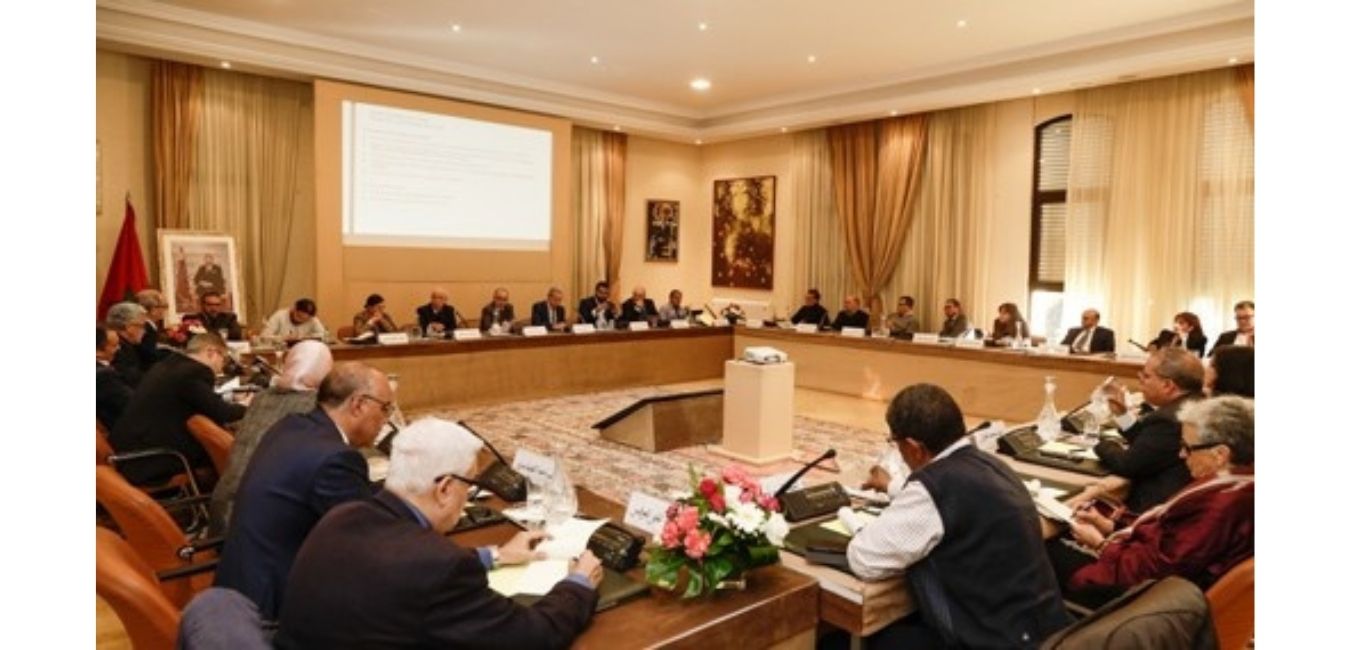The Bridge Tank and the French Development Agency launched a joint seminar series on blue economy in the Bay of Bengal (Bangladesh, India, Sri Lanka)
The Bridge Tank and AFD are co-hosting three workshops to understand the way in which Bangladesh, India and Sri Lanka organize their blue economy strategies, adapt to the physical impacts of climate change of the fishery resource and to identify the priorities, the opportunities and the needs for action. Along with the research and operational departments of the French Development Agency (AFD), we engage with marine, coastal and fisheries resource management bodies and influential national or regional think tanks.
On November 26th 2021, the online inaugural workshop gathered strategic thinking of the participants ahead of developing a growing interaction between them and institutes and policy makers in the following workshops, planned for January and February 2022.
This first workshop aimed at earmarking new blue economy priorities for various actors and nations in the Bay of Bengal, bringing shared understandings and diagnostics, identifying opportunities and needs in socio-economic projects. It aimed to identify the regional context and issues related to the blue economy, in particular the improvement of living standards of coastal communities and resource users through sustainable management of fisheries and integrated coastal management to adapt to climate change, through two panels.
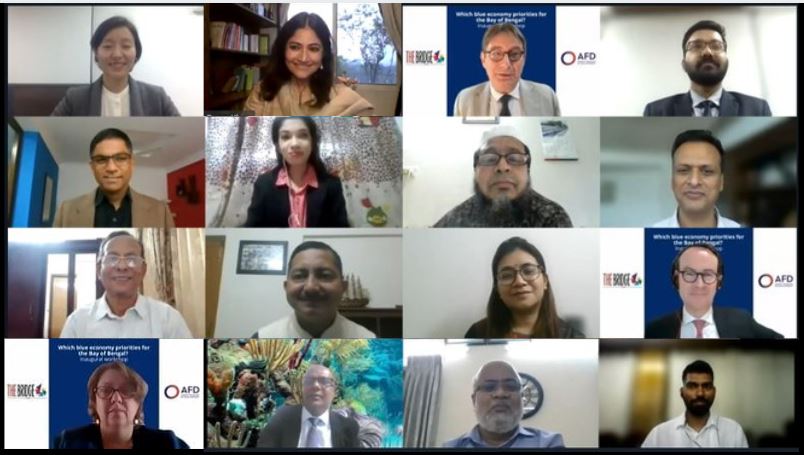
This virtual event brought together 12 speakers from 10 key organizations working on the blue economy in the region, gathering over 100 attendees.
Two panels shared speakers’ understanding of the different local issues related to the value chain of fisheries resources.
- Panel 1: “Resilient coastal ecosystems as a crucial prerequisite for sustainable economic value chains?”
Speakers:
Dr. Arnab Das, Director, Maritime Research Centre, India
Dr Srinivas Kumar, Director, Indian National Center for Ocean Information Services (INCOIS)
Ms Hasamini Sweenie Thilakarathne, Project coordinator and international affairs officer, Marine Environment Conservation Society of Sri Lanka (MECS), Sri Lanka Dr Chime Youdon & Dr Saurabh Thakur, Associate Fellows, National Maritime Foundation
Mr. Mashiur Rahaman, Joint Secretary, Ministry of Fisheries and Livestock
- Panel 2: “Sustainable fisheries and enhanced livelihood: actions on fisheries for food security, job access and climate change adaptation in the region”
Speakers:
Mrs Afifat Khanam Ritika, Research Officer, Bangladesh Institute of Maritime Research and Development (BIMRAD)
Mr Md. Abdul Wahab, EcoFish Team Leader, WorldFish, Bangladesh Wing
Mrs Runa Khan, Founder & Executive Director, Friendship NGO
Dr M.F.M. Fairoz, Dean, Faculty of Fisheries and Marine Sciences, Ocean University of Sri Lanka
Dr. Md. Sharif Uddin, Department of Fisheries, Bangladesh
To watch the workshop online, click here: Panel 1 & Panel 2
To read the minutes report, click here

